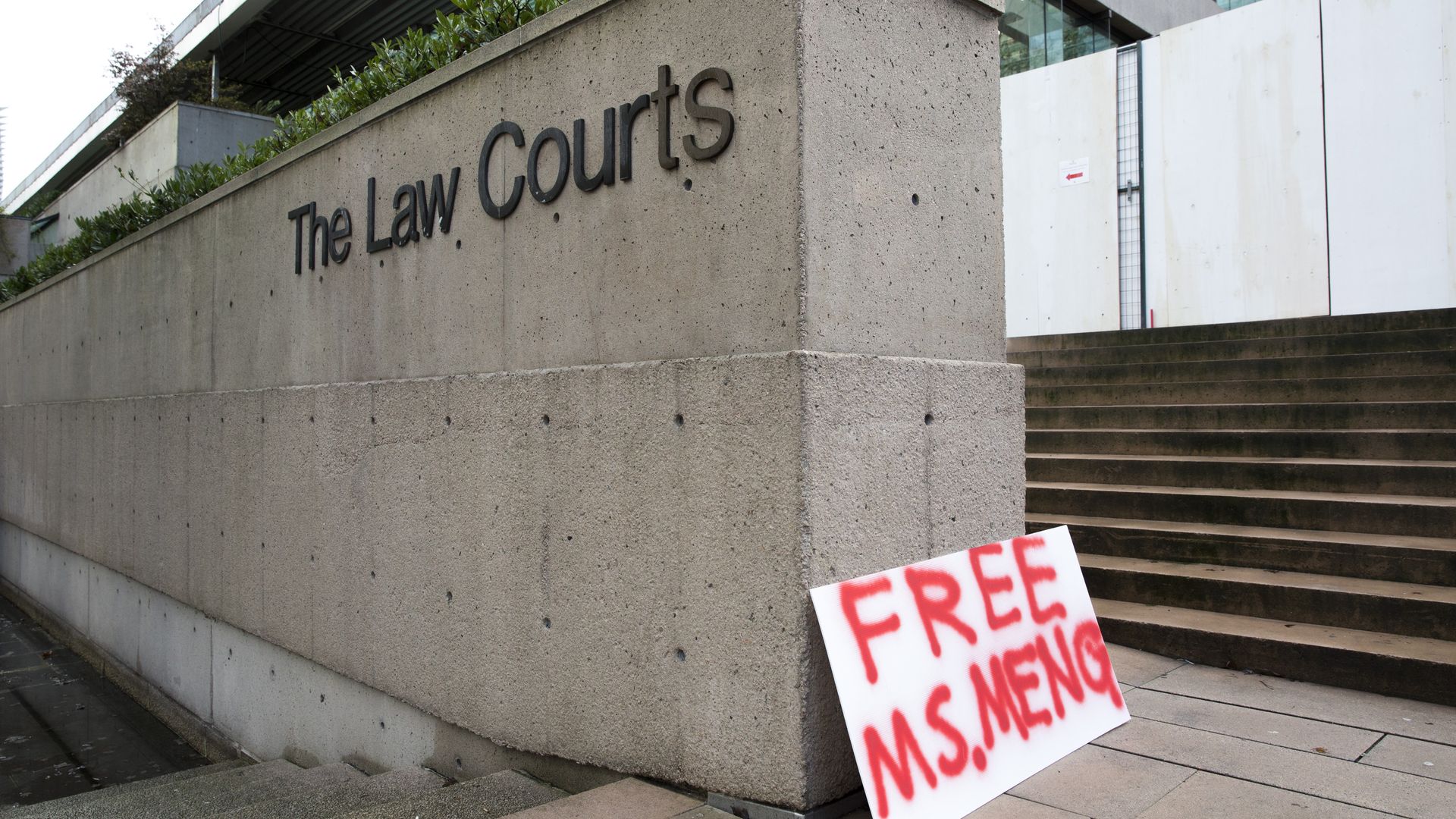Dec 21, 2018 - Technology
Expert VoicesHuawei arrest marks escalation in the U.S.–China fight over 5G
Add Axios as your preferred source to
see more of our stories on Google.

A sign calling for the release of Huawei CFO Meng Wanzhou outside the British Columbia Superior Courts in Vancouver, on Dec. 10. Photo: Jason Redmond/AFP via Getty Images
